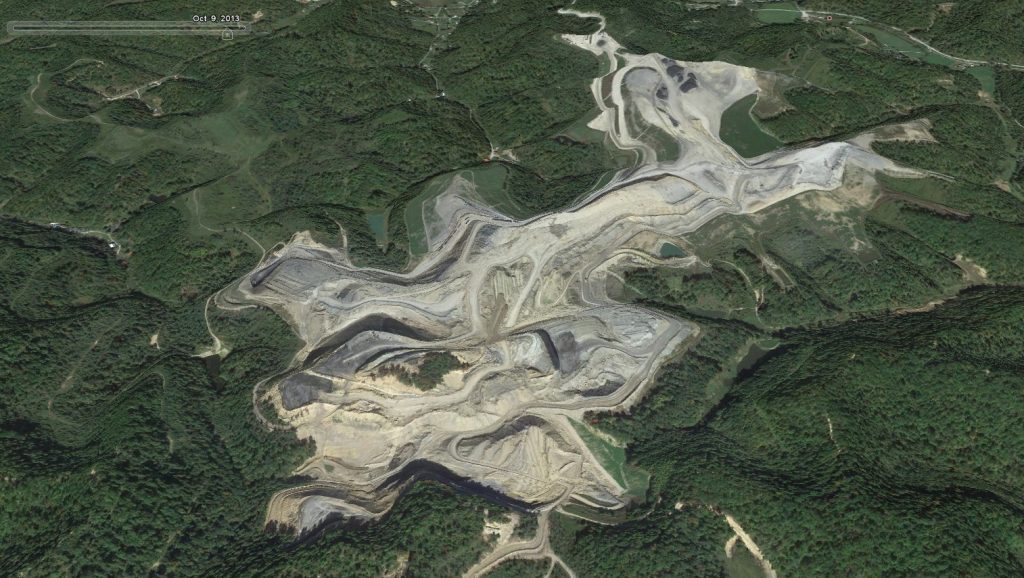Cleaning Up Coal Ash
For well over a century, power plants across the country have burned coal to generate electricity. And for just as long, leftover coal ash has been dumped in open, unlined pits near the power plant, usually located on a river or lake. Every year, U.S. power plants produce 130 million tons of coal ash, which is the second largest waste stream in the country after municipal garbage.
Coal ash concentrates the toxic heavy metals found in coal, including arsenic, mercury, lead and selenium. Stored in unlined, wet impoundments, coal ash has been leaking these toxics into our groundwater and surface waters for years. Sometimes these impoundments collapse — with disastrous results.
Yet government regulations for coal ash management are either non-existent or sparse, and there is little enforcement of the regulations that do exist. In North Carolina, this lack of oversight — and the complicity between state regulators, elected officials and Duke Energy — came to a boiling point in February 2014 when one of Duke’s coal ash impoundments spilled 39 million tons of ash into the Dan River.
Citizens living near North Carolina’s 33 coal ash impoundments — all of which have leaked — have fought for transparency from Duke and the state, and for cleanup of the pollution that threatens their property value, health and family. Their actions forced this issue into the headlines of news networks and to the forefront of environmental justice conversations in the United States.
Appalachian Voices stood with these communities as we worked for years to compel Duke Energy and the N.C. Department of Environmental Quality to excavate coal ash from all the North Carolina sites and dispose of it either in lined, dry landfills, away from waterways, or by recycling it for concrete or other uses, provided it’s done in a manner that protects public health and the environment.
On Jan. 2, 2020, North Carolina announced a historic settlement with one of the state’s most powerful corporations and polluters, Duke Energy. The settlement requires Duke to move nearly 80 million tons of toxic coal ash at six of its power plants to properly lined landfills onsite or recycle it.

Learn information about specific coal ash impoundments in the South, including health threats and safety ratings:
Additional Resources
Fact sheets, videos, links to academic research, and more
Sign Up to Act
Help us protect the health of our communities and waterways.
Latest News
Fighting Mountaintop Removal During the Obama Years
In 2009, representatives of the new Obama administration repeated that “the administration will do what the science calls for.” In Appalachia, the science calls for an end to mountaintop removal coal mining. Six years later, mountaintop removal is still happening.
Appalachia’s Health Checkup
For decades, residents of Appalachia have struggled with poor health and disproportionate rates of chronic disease. In the face of these challenges, efforts to bring medical care to those in need and foster healthier communities are growing.
Crowdfunding Solar in West Virginia
In a state known for coal, solar energy emerges through a grassroots “barn-raising.” This innovative program relies on energy efficiency and a collaborative spirit to harness the sun’s power for community nonprofits.
Appalachian Voices Uncovers Clean Water Violations in Kentucky
Judge Rejects Deals Between State and Coal Company…
Remembering an Environmental Warrior
Lenny Kohm was an activist who inspired countless people from the Arctic to Appalachia to stand up and exercise their right to protect the land and communities they love. We share several of the many tributes made to this hero, known by many as “The Chief.”
Corruption and Enforcement Failures Raise Concern for Clean Water
Recently uncovered conspiracies to violate the Clean Water Act have heightened concerns about corruption in central Appalachia and the effectiveness of state agencies responsible for enforcing the law.










